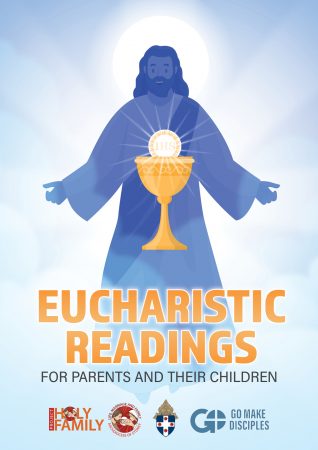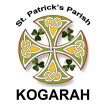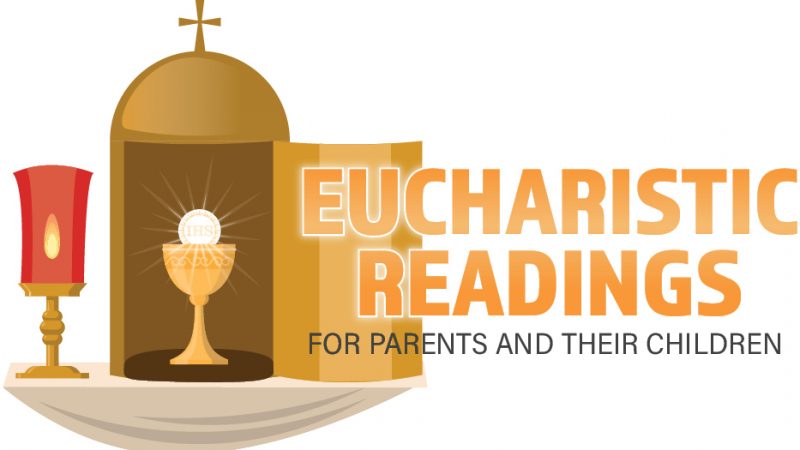 St. Patrick's Catholic Church, Kogarah
St. Patrick's Catholic Church, Kogarah
 The Eucharist
The Eucharist
-
1413 By the consecration the transubstantiation of the bread and wine into the Body and Blood of Christ is brought about. Under the consecrated species of bread and wine Christ himself, living and glorious, is present in a true, real, and substantial manner: his Body and his Blood, with his soul and his divinity (cf. Council of Trent: DS 1640; 1651).1415 Anyone who desires to receive Christ in Eucharistic communion must be in the state of grace. Anyone aware of having sinned mortally must not receive communion without having received absolution in the sacrament of penance.THE EUCHARISTIC CELEBRATIONCan. 899 §1. The eucharistic celebration is the action of Christ himself and the Church. In it, Christ the Lord, through the ministry of the priest, offers himself, substantially present under the species of bread and wine, to God the Father and gives himself as spiritual food to the faithful united with his offering.PARTICIPATION IN THE MOST HOLY EUCHARISTCan. 915 Those who have been excommunicated or interdicted after the imposition or declaration of the penalty and others obstinately persevering in manifest grave sin are not to be admitted to holy communion.Can. 916 A person who is conscious of grave sin is not to celebrate Mass or receive the body of the Lord without previous sacramental confession unless there is a grave reason and there is no opportunity to confess; in this case the person is to remember the obligation to make an act of perfect contrition which includes the resolution of confessing as soon as possible.Can. 919 §1. A person who is to receive the Most Holy Eucharist is to abstain for at least one hour before holy communion from any food and drink, except for only water and medicine.§3. The elderly, the infirm, and those who care for them can receive the Most Holy Eucharist even if they have eaten something within the preceding hour.Can. 920 §1. After being initiated into the Most Holy Eucharist, each of the faithful is obliged to receive holy communion at least once a year.§2. This precept must be fulfilled during the Easter season unless it is fulfilled for a just cause at another time during the year.What is Communion?
THE WORD “COMMUNION” MEANS “UNION WITH”…IN THE CATHOLIC CHURCH ONLY THOSE WHO ARE IN FULL UNION WITH THE CHURCH ON DOCTRINAL MATTERS AND IN THEIR PERSONAL LIVES – WITH THEIR SOUL IN THE STATE OF GRACE – MAY RECEIVE HOLY COMMUNION.1) You must be in a state of grace. CCC 14152) You must have been to confession since your last mortal sin. Can. 9163) You must believe in the doctrine of transubstantiation. CCC 14134) You must observe the Eucharistic fast. Can. 9195) You must not be under an ecclesiastical censure. Can. 915Scripture is clear that partaking of the Eucharist is among the highest signs of Christian unity: “Because there is one bread, we who are many are one body, for we all partake of the one bread” (1 Cor. 10:17). For this reason, it is normally impossible for non-Catholic Christians to receive Holy Communion, for to do so would be to proclaim a unity to exist that, regrettably, does not. Another reason that many non-Catholics may not ordinarily receive Communion is for their own protection, since many reject the doctrine of the Real Presence of Christ in the Eucharist. Scripture warns that it is very dangerous for one not believing in the Real Presence to receive Communion: “For any one who eats and drinks without discerning the body eats and drinks judgment upon himself” (1 Cor. 11:29). -
The purpose of this resource is to complement your First Holy Communion sacramental program. It is an accompaniment resource that allows parents to actively engage in their child’s formation towards receiving the Eucharist. This resource contains formative teachings, insights, and miraculous stories from the lives of the Saints on the Eucharist. Furthermore, each reading is linked to visual media for children to watch as they go. You can find the resource by clicking on the Image or this link.
 Download the E-Book (pdf) by clicking on the Image or this link.
Download the E-Book (pdf) by clicking on the Image or this link.

